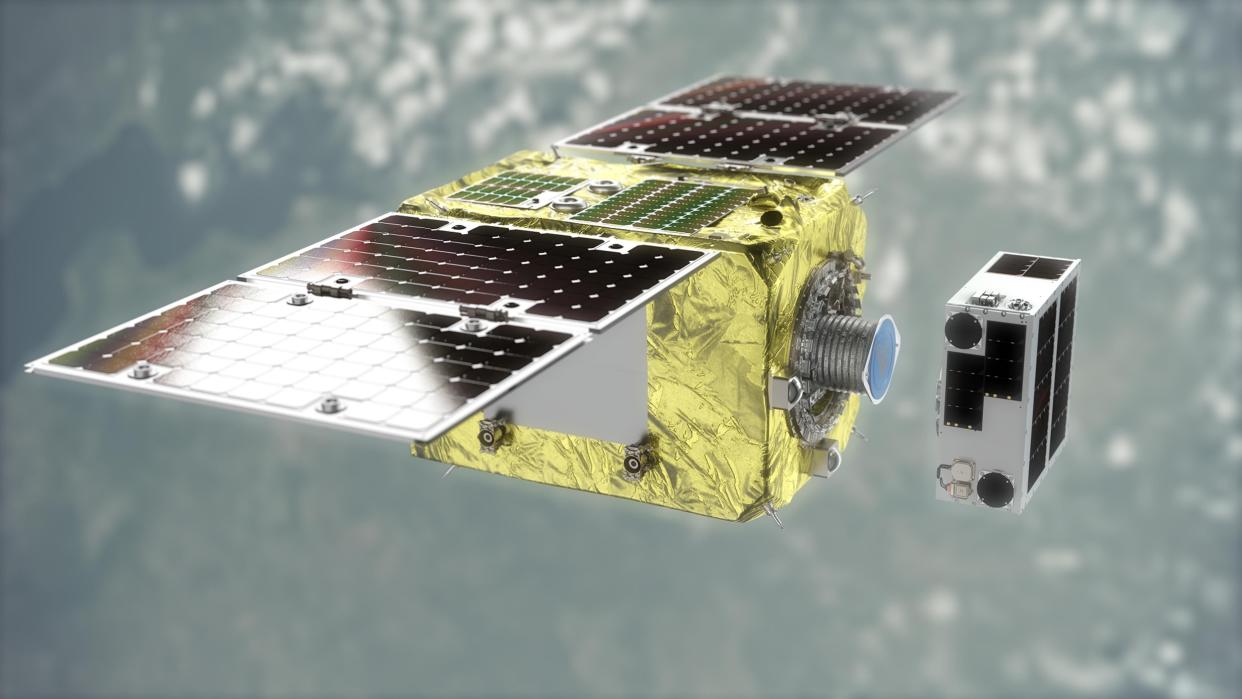Space debris demonstration mission blasts off

A UK-led mission to show how space debris can be removed has blasted into space.
The world’s first such mission was initially due for launch on Saturday but, due to technical concerns, was postponed until Monday morning.
According to the European Space Agency, there is approximately 9,200 tonnes of space debris, with 34,000 objects greater than 10cm and 128 million objects from greater than 1mm to 1cm.
It estimates there have been more than 560 break-ups, explosions, collisions or anomalous events resulting in fragmentation.
While rocket launches have placed about 10,680 satellites in Earth’s orbit since 1957, around 6,250 of these are still in space, but only 3,700 are still functioning.
A collision with space debris could have a big impact on satellite services people rely on every day, including mobile phones and online banking.
We have liftoff at 6:07 UTC 🥂 #GoELSAd @gk_launch pic.twitter.com/jcKiGbcEo1
— Astroscale (@astroscale_HQ) March 22, 2021
On Monday, two spacecraft – a servicer satellite to collect the debris and a client satellite to act as the debris – launched from Kazakhstan on a Soyuz rocket operated by GK Launch Services.
The End-of-Life Services by Astroscale demonstration (ELSA-d) will be operated from the In-Orbit Servicing Control Centre – National Facility at the Satellite Applications Catapult (SAC) at Harwell Campus in Oxfordshire.
It is expected to start major demonstrations in around June or July.
The servicer satellite has been developed to safely remove debris from orbit, equipped with proximity rendezvous technologies and a magnetic docking mechanism.
The client satellite is a piece of replica debris fitted with a plate that enables the docking.
During the mission, the servicer will repeatedly release and dock with the client in a series of technical demonstrations, indicating the capability to find and dock with defunct satellites and other debris.
Demonstrations include looking for the client, inspecting it and meeting up with it, and both tumbling and non-tumbling docking.
ELSA-d is the world’s first commercial demonstration debris removal mission.
Speaking ahead of the launch, UK Science Minister Amanda Solloway said: “The removal of hazardous space debris is not only environmentally important but is also a huge commercial opportunity for the UK, with companies like Astroscale leading the way in demonstrating how we can make space safer for everyone.”

 Yahoo News
Yahoo News 
